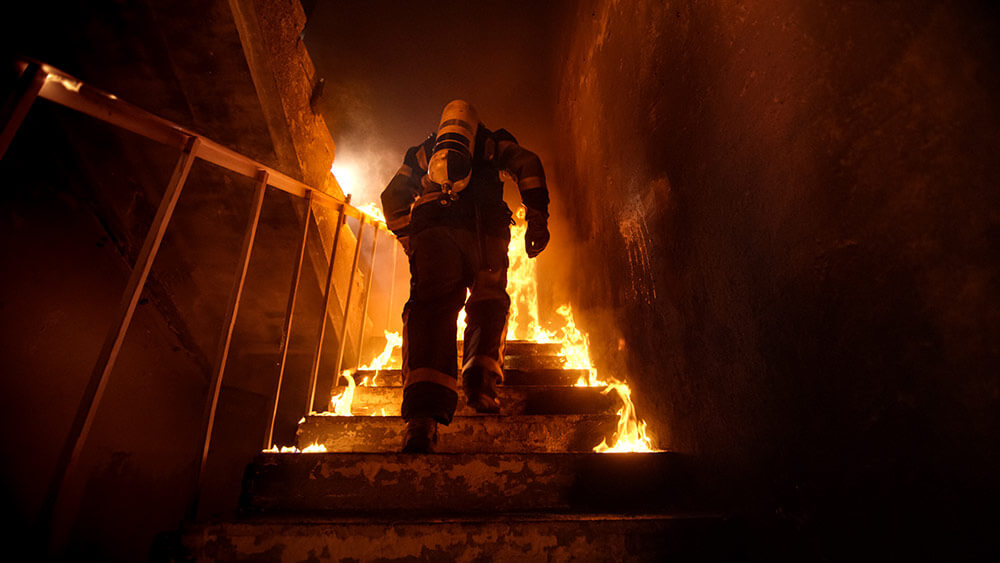As the Nation’s first responders in times of natural disasters, Guard Soldiers know exactly what to do to evacuate and lead others to safety. Often, first responders are so intently focused on preparing to save others, they forget they must also prepare for their own safety and the safety of their families during unexpected emergencies—like a fire.
Fire can spread and destroy your home quickly. In such an emergency, it’s important you and your family know what to do and are able to do it fast. Home fires are preventable, but if the worst happens you should be prepared to get out of your home quickly and safely. The use of a smoke detector and regularly practicing an evacuation plan, will greatly increase the chances of escaping a fire safely.
Most States either require by law or strongly encourage all residents to keep a working smoke detector in the home. It is best to have a smoke detector on every level of the home, and outside all sleeping areas. Check smoke detectors monthly to ensure they are operational and the batteries are working. Talk to your children about your evacuation plan, making sure they recognize the sound of the smoke detector and know what to do if it goes off. As part of your fire escape plan, determine with your family two ways to get out of the house, if possible, two ways to get out of each room in the house and somewhere that would be a safe distance from the house to go and meet. Practice the escape plan twice a year. Consider practicing escape routes with your eyes closed to simulate the blinding effects of smoke. Teach children not to hide from firefighters if they get trapped in a room.
During a fire, stay low to the ground to avoid inhaling smoke and poisonous gases. Before opening any door, feel the doorknob and the door itself to check if it is hot. If either is hot, do not open the door and, instead, find another way out. After confirming it is safe to do so, open doors slowly and be ready to shut it quickly if there is heavy smoke or fire on the other side of the door. Once outside at the determined meeting place, call 911 and do not reenter the building. If you or a loved one is injured, or a loved one or pet is still inside the home, tell the 911 emergency operator so they can relay that information to firefighters and other first responders.
If trapped inside during a fire, close the door to the room and try to cover any openings with cloth or tape to keep smoke out of the room. Call 911 and tell the emergency operator where in the home you are located.
After a fire, check with the fire department to determine when and if your home is safe to enter, but remain cautious and aware of any structural damage caused by the fire. The fire department will either make sure that utilities are safe to use or disconnect them. Do not reconnect utilities yourself. Instead, call a professional to do this. Visit Redcross.org/Find-Your-Local-Chapter to contact a local Red Cross office for help with temporary housing, food or medicine.
by Staff Writer Aryn Kitchell



